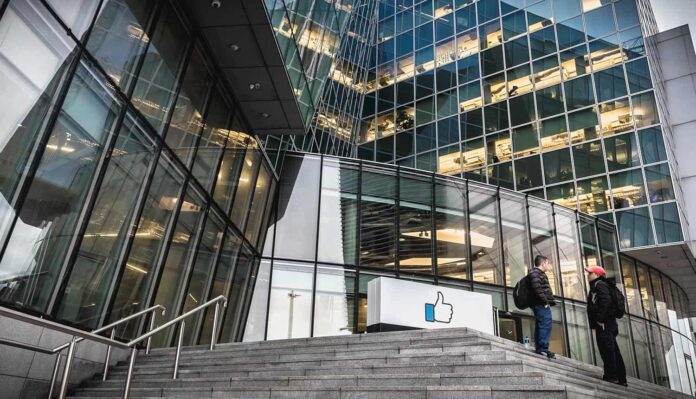Introduction
The Irish government has posted job ads for two additional commissioners to lead the Data Protection Commission (DPC), a regulatory body overseeing the compliance of major tech firms with the European Union’s stringent data protection framework. With the power to levy fines of up to 4% of global annual turnover for infringements, the DPC plays a crucial role in enforcing the General Data Protection Regulation (GDPR) across the EU. This article explores the significance of these new appointments, the evolving role of the DPC, and the challenges it faces in regulating tech giants.
The Role of the Data Protection Commission
The DPC holds a pivotal position in the enforcement of GDPR due to the substantial presence of tech giants choosing to establish regional bases in Ireland. Notable companies under the DPC’s oversight include Apple, Google, Meta, TikTok, and Twitter’s parent company, X. The DPC also faces the emerging challenge of regulating AI giant OpenAI, which recently opened an office in Dublin, potentially making the DPC its lead GDPR regulator.
Expansion of Leadership: New Commissioners
The incoming commissioners will join the current commissioner, Helen Dixon, who will transition to the role of chair within the newly established trio-of-commissioners structure. Dixon’s term is set to expire next year, marking a leadership transition at the regulatory body. This expansion aims to bolster the DPC’s capabilities and address its burgeoning case load, which involves overseeing the GDPR compliance of multiple tech giants.
Job Requirements for Commissioners
Candidates for these commissioner roles must meet stringent qualifications. These include a comprehensive understanding of relevant legal systems and frameworks, encompassing national and EU law on data protection, human rights law, law enforcement procedures, and administrative law. Additionally, candidates must possess a deep understanding of ICT and data processing methods, coupled with an excellent grasp of data protection issues stemming from their use.
The DPC’s Crucial Role in GDPR Enforcement
The Data Protection Commission (DPC) plays a pivotal and indispensable role in the enforcement of the General Data Protection Regulation (GDPR) within the European Union (EU). Its significance stems from several key factors:
1. Central Oversight for Major Tech Firms: The DPC is entrusted with overseeing the GDPR compliance of major technology companies operating within the EU. Many of these tech giants, including Apple, Google, Meta (formerly Facebook), TikTok, and X (Twitter), have chosen Ireland as the location for their substantial regional bases. This strategic choice by tech companies makes the DPC their primary regulatory authority when it comes to data protection issues. As such, the DPC holds substantial sway in regulating the data practices of these influential firms.
2. Enforcement Authority: The DPC possesses the authority to enforce GDPR regulations rigorously. This includes conducting investigations, scrutinizing data practices, and imposing fines for GDPR infringements. Notably, GDPR grants regulatory bodies the power to levy fines of up to 4% of a company’s global annual turnover, which can translate into significant penalties for tech giants found in violation of GDPR rules. These fines serve as a deterrent to companies that might otherwise be tempted to disregard data protection laws.
3. One-Stop-Shop Mechanism: GDPR features a crucial provision known as the “one-stop-shop” mechanism. This mechanism designates a lead supervisory authority responsible for overseeing GDPR compliance for companies with a presence in multiple EU member states. The DPC’s role as the lead supervisory authority is pivotal because it streamlines regulatory oversight. Instead of each EU member state independently regulating a company, the DPC takes the lead, providing a unified approach to enforcement. This mechanism ensures consistency and efficiency in addressing data protection concerns for tech firms operating across the EU.
4. Growing Case Load: The DPC’s responsibilities have expanded significantly since the implementation of GDPR in May 2018. Tech companies are continuously innovating and expanding their data-driven services, resulting in a growing number of data protection cases. The DPC faces the challenge of managing and resolving these cases efficiently while ensuring that companies adhere to GDPR standards.
5. Emerging Challenges: Beyond its current case load, the DPC must address emerging challenges posed by advancements in technology. One of the notable challenges is the regulation of generative artificial intelligence (AI). As AI technologies become increasingly integrated into various sectors, including decision-making processes, privacy concerns arise. The DPC is expected to navigate these complex issues and provide guidance on how AI systems can operate while respecting data protection rights.
6. Addressing Criticisms: The DPC has faced criticisms from privacy experts, advocacy groups, and other EU regulatory bodies. Critics argue that the DPC’s enforcement of GDPR has at times been perceived as lenient, especially concerning tech giants. The regulator has been accused of not fully harnessing its authority to hold companies accountable for data protection violations. As a result, the DPC has had to defend its approach and demonstrate its commitment to thorough investigations and GDPR enforcement.
Addressing Criticisms and Pushing for GDPR Compliance
Commissioner Helen Dixon has consistently defended the DPC’s actions, emphasizing the complexity of the cases and the regulator’s commitment to thorough investigations. Recent decisions, including a $379 million fine imposed on TikTok, a $1.3 billion fine on Meta for unlawful data exports, and a $410 million fine on Meta for tracking and profiling users for ad targeting, have highlighted the DPC’s enforcement efforts. However, its draft decisions have often faced scrutiny and pushback from peer authorities and the European Data Protection Board, leading to more substantial breach findings and fines than initially proposed.
The Criticisms and the Path Ahead
Privacy rights group noyb has been vocal in its criticism, contending that the DPC’s enforcement has been lenient, particularly regarding Meta. In November 2021, noyb even filed a criminal corruption complaint against the DPC, alleging “procedural blackmail” in relation to a complaint against Facebook/Meta. The Irish Civil Liberties Board (ICCL) also sued the DPC for inaction on a complaint against Google’s adtech.
The European Commission has increased its monitoring of how regulators, including the DPC, enforce the GDPR. This summer, the EU proposed reforms to procedural rules surrounding GDPR enforcement, aiming to enhance efficiency and harmonization.
The Impact of New Appointments
The appointment of two new commissioners to the DPC is a significant development. It addresses longstanding calls, including those from the ICCL, for the DPC to have multiple commissioners. The ICCL expressed its satisfaction with this step while emphasizing the need for further reforms. Dr. Johnny Ryan, senior fellow at the organization, stressed the importance of considering conflicts of interest and involving human rights experts in the appointment process.
Conclusion
The Irish Data Protection Commission’s role in overseeing Big Tech’s compliance with GDPR is of paramount importance, given the tech giants headquartered in Ireland. The expansion of leadership through the appointment of new commissioners signals a potential shift in the DPC’s approach to GDPR enforcement. As the DPC navigates complex cases and emerging challenges, its ability to balance the interests of privacy rights and technological innovation will remain a topic of scrutiny. The impact of these new appointments and potential reforms will be closely monitored, as they could shape the future of data protection enforcement in the EU.









